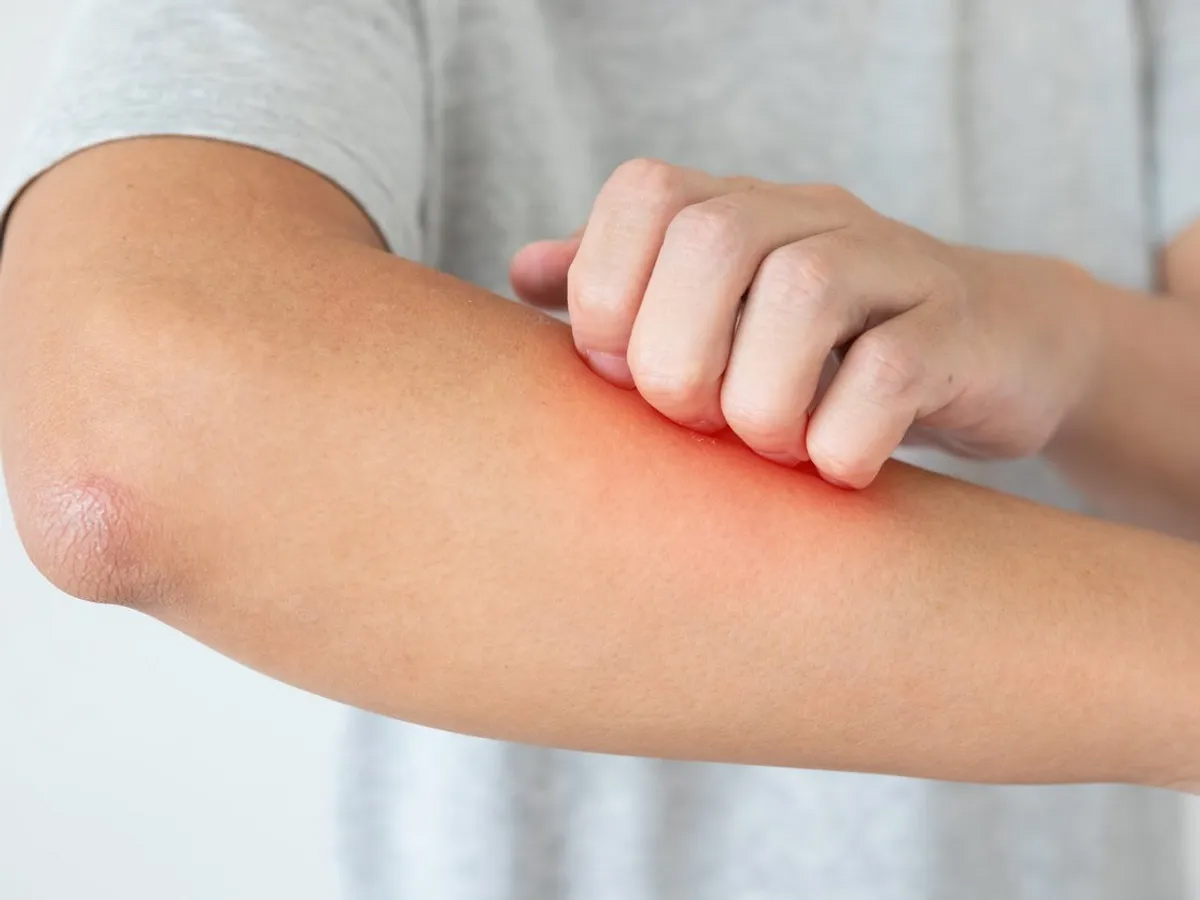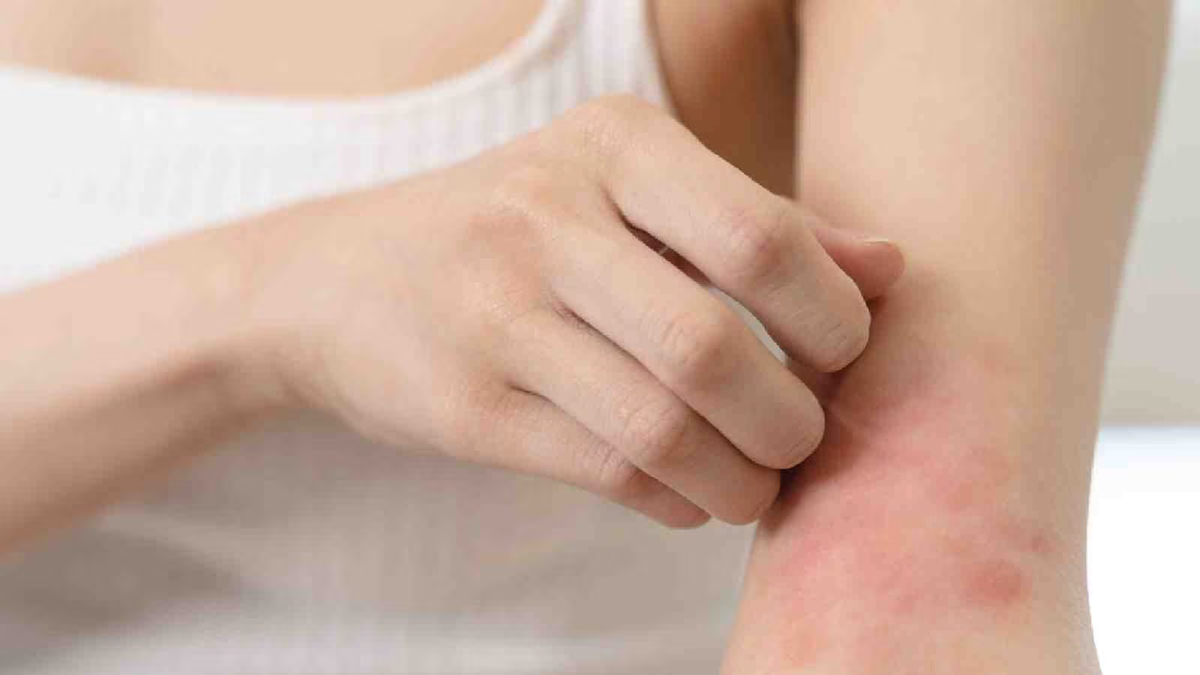
Renowned for his extreme commitment to health and longevity, US millionaire Bryan Johnson follows a meticulous lifestyle, spending millions annually on wellness. However, even his rigorous health routine couldn't protect him from the effects of air pollution during his recent trip to India. On the third day of his visit, Johnson experienced a severe skin rash, burning eyes, and throat irritation—forcing him to cut short his appearance on Nikhil Kamath's podcast.
Table of Content:-
His experience raises a crucial question: Can air pollution really harm your skin? Let's explore what Johnson had to say and the science behind air pollution's impact on skin health.
Bryan Johnson on His ‘Pollution Rash’ Experience in India
When in India, I did end this podcast early due to the bad air quality. @nikhilkamathcio was a gracious host and we were having a great time. The problem was that the room we were in circulated outside air which made the air purifier I'd brought with me ineffective.
— Bryan Johnson /dd (@bryan_johnson) February 3, 2025
Inside,… https://t.co/xTkpW567Xv
While recording for ‘WTF is’, a podcast hosted by Zerodha co-founder Nikhil Kamath, Johnson found himself struggling with poor air quality. In a tweet, he revealed that the podcast room was circulating outdoor air, rendering his personal air purifier ineffective.
He noted that the Air Quality Index (AQI) inside the room was 130, with PM2.5 levels reaching 75 µg/m³—equivalent to smoking 3.4 cigarettes over 24 hours. Johnson described his discomfort, saying:
"By my third day in India, the air pollution had made my skin break out in a rash, and my eyes and throat were burning. Air pollution has become so normalised in India that no one even notices anymore, despite scientific evidence of its harmful effects. People were outside running, babies and children were exposed from birth, and no one wore masks, even though they significantly reduce exposure."
He went on to say that improving air quality in India would have a greater impact on public health than curing all cancers, yet authorities do not treat it as a national emergency. But was Johnson’s reaction an exaggeration? Science says otherwise.
How Air Pollution Affects the Skin

As per Dr Chandni Jain Gupta, Dermatology | Venereology | Cosmetology, Elantis Healthcare, air pollution isn’t just harmful to your lungs—it can wreak havoc on your skin as well. Pollution particles, including PM2.5, nitrogen dioxide (NO₂), and volatile organic compounds (VOCs), can penetrate the skin barrier, triggering inflammation, oxidative stress, and premature aging.
Experts highlight that pollution is linked to various dermatological conditions, including:
- Acne breakouts
- Eczema (atopic dermatitis)
- Psoriasis
- Hyperpigmentation and melasma
- Wrinkles and premature ageing
Also Read: Sonu Nigam Suffers Back Spasm On Stage During Concert: What It Is & Easy Ways to Treat It
Pollutants penetrate the skin in multiple ways:
- Direct accumulation on the skin's surface
- Absorption through hair follicles and sweat glands
- Inhalation and circulation of toxins through the bloodstream
Once inside, these pollutants generate harmful free radicals (ROS), which cause skin cell damage, inflammation, and reduced collagen production.
Common Skin Issues Triggered by Pollution

People exposed to high pollution levels often experience:
- Skin dryness and irritation
- Burning and redness
- Increased sensitivity
- Worsening of existing skin conditions like rosacea
In polluted environments, chronic exposure leads to a compromised skin barrier, making it harder for the skin to retain moisture and protect itself from further damage.
Other Health Issues Linked to Air Pollution
Beyond skin-related problems, pollution also affects respiratory health, leading to:
- Watery, itchy eyes
- Nasal congestion and throat irritation
- Persistent dry cough
- Chest tightness and wheezing
Many individuals report that once symptoms begin, they persist for two to three weeks, even after reduced exposure.
How to Protect Your Skin from Air Pollution

While we can’t completely escape air pollution, there are ways to minimize its impact on our skin:
- Use an antioxidant-rich skincare routine – Vitamin C and E serums help neutralise free radicals.
- Cleanse your face daily – Washing away pollutants prevents them from settling into pores.
- Moisturise and strengthen your skin barrier – A good moisturiser helps prevent skin damage.
- Apply sunscreen daily – UV rays and pollution combined can accelerate skin ageing.
- Wear a mask when outdoors – A high-quality N95 mask can filter out PM2.5 particles.
- Invest in indoor air purifiers – Clean indoor air reduces continuous exposure to pollutants.
Bottomline
Bryan Johnson’s experience in India highlights the alarming impact of air pollution on skin and overall health. While some may dismiss his reaction as extreme, scientific research supports his concerns—long-term exposure to polluted air accelerates skin aging, triggers breakouts, and worsens dermatological conditions.
As air pollution continues to rise in urban areas worldwide, prioritizing skin protection and overall health is more important than ever. Whether through better skincare routines, pollution control policies, or lifestyle changes, taking action against pollution is essential for everyone’s well-being.
Also watch this video
How we keep this article up to date:
We work with experts and keep a close eye on the latest in health and wellness. Whenever there is a new research or helpful information, we update our articles with accurate and useful advice.
Current Version